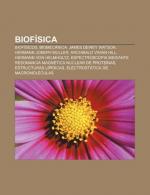|
This section contains 948 words (approx. 4 pages at 300 words per page) |

|
Encyclopedia of World Biography on Archibald Vivian Hill
English physiologist Archibald Vivian Hill (1886-1977) shared the Nobel Prize in Physiology or Medicine (1922) for his discoveries relating to the production of heat in muscles.
The son of a timber merchant, A(rchibald) V(ivan) Hill was born in Bristol, England, on Sept. 26, 1886. In 1904 he entered Trinity College, Cambridge, to begin a brilliant career, first in mathematics, then in physiology, in which he obtained a first-class honors degree in 1909.
From 1909 until World War I broke out in 1914, Hill did research work in the Physiological Laboratory at Cambridge. Advised to investigate "the efficiency of cut-out frog's muscle as a thermodynamic machine," this would become Hill's life work. During the war he was director of an official group of scientists who produced revolutionary recommendations on antiaircraft gunsights. In 1920 Hill became Brackenbury professor of physiology in the University of Manchester and in 1923 Jodrell professor of physiology at University College, London. Two...
|
This section contains 948 words (approx. 4 pages at 300 words per page) |

|


